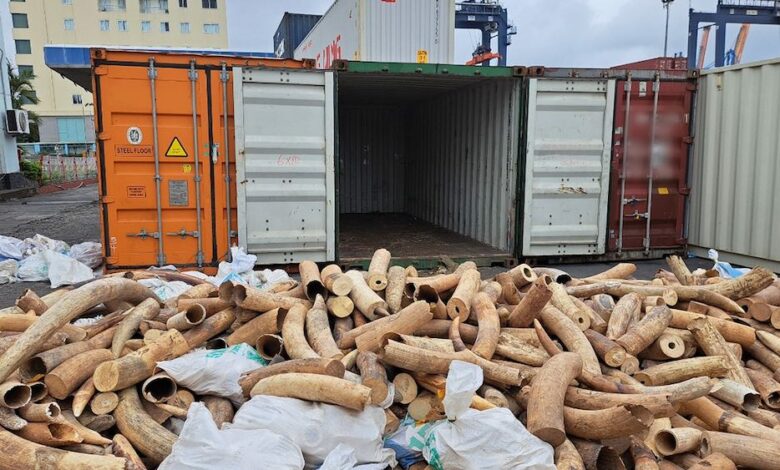World Shipping Council leads fight to combat illegal wildlife trafficking

Wildlife crime continues to pose a significant threat to biodiversity, local and national economies, as well as national and international security. The illicit trafficking of wildlife not only endangers countless species but also undermines the stability of ecosystems and jeopardises the livelihoods of communities worldwide. Recognising the severity of this issue, 10 organisations have joined forces to combat illegal wildlife trafficking through increasing awareness and vigilance across global supply chains.
Maritime traffic, in particular, remains vulnerable to the trafficking of illegal goods. It’s estimated that 72-90% of illegally trafficked wildlife, including live animals, animal products, plants, and timber, is smuggled via the shipping industry.
With the vast volume of trade carried by sea, the demand for faster, just-in-time deliveries and the increasing complexity of intermodal supply chains, criminals increasingly exploit weaknesses in global maritime supply chains to traffic contraband items.
Stepping up the fight against illegal wildlife trafficking, 10 international organisations have joined forces in an initiative led by the World Shipping Council, supported by United Nations Development Program, the Global Environment Facility, and the Global Wildlife Program, in collaboration with TRAFFIC and WWF, and co-sponsored by BIC, Global Shippers Forum, the International Fund for Animal Welfare and TT Club. Together, they have produced practical guidelines for all supply chain participants, with advice on measures to take, questions to ask to help identify criminal wildlife trade, and guidance on reporting suspicious activities. An accompanying ‘Red Flags’ document serves as a daily reference for all individuals involved in the supply chain.
“Combatting illegal wildlife trafficking is a shared responsibility that requires collaboration across international containerised supply chains. All parties involved, especially consolidators and those receiving goods for packing or carriage, must take proactive steps to prevent the shipment of illegal wildlife,” a release from the organisations involved states. This includes verifying the legitimacy of cargoes, properly sealing shipments, conducting risk assessments, and promptly alerting national authorities to suspicious activities, as appropriate.
“By working together to increase awareness across the supply chain of how to spot and address this criminal activity, we can prevent the exploitation of global maritime supply chains for criminal activities and protect endangered species worldwide,” said John Butler, president and CEO of the World Shipping Council, liner shipping’s lobby group.
Pictured above customs officers at the port of Haiphong in Vietnam uncovered seven tons of ivory in a shipment last March, the port’s largest-ever ivory detection.
The container departed from Angola and transited in Singapore, declared to contain peanuts. Smugglers often disguise the shipment’s origin in the hopes that it will allow them to avoid detection.
